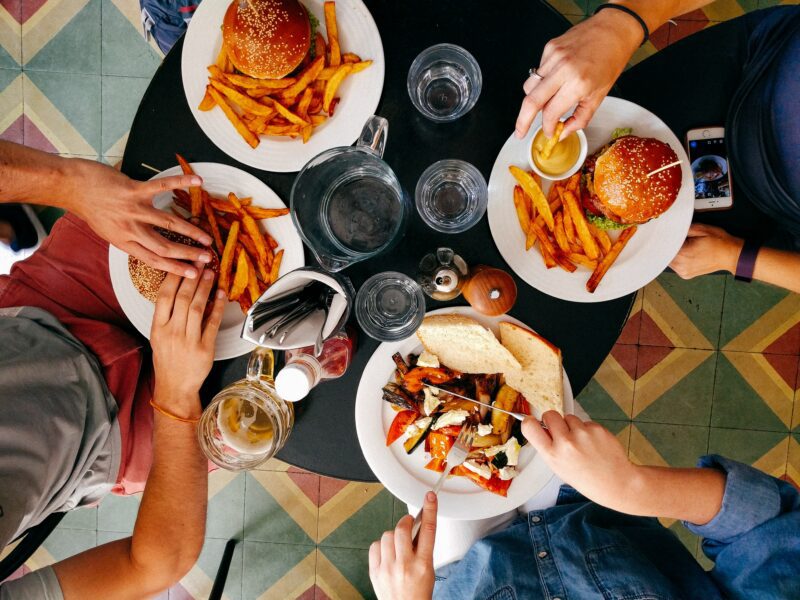
The biggest mistake people make when intermittent fasting is jumping into the bandwagon blindly. Intermittent fasting can be a powerful weight loss tool if you know what to do. And that includes understanding the most common intermittent fasting mistakes to avoid.
You’ll make mistakes here and there once you embark on this journey- and it’s okay. But you don’t have to figure out everything about IF on your own. It also pays to learn from other people’s mistakes.
We have compiled a list of 5 of the most common mistakes to avoid during intermittent fasting if you want to reach your weight loss goals with minimal struggle.
Mistake 1: Failing to Choose the Right Plan
Choosing the wrong method is the biggest mistake people make when doing intermittent fasting. There are ten different types of intermittent fasting schedules, all of which may help you achieve your weight loss goals. But there’s nothing like the best IF method for everyone.
Don’t practice a particular intermittent fasting method because your partner, friend, or family member had success using it. We are all different and respond differently to fasting based on factors such as health, genetic makeup, and lifestyle.
For instance, OMAD is a very effective way of losing weight quickly. Most people lose 2-5 kilograms per week, eating one meal a day. But going for 23 hours without food can be a real challenge if you have a high metabolism and your work requires plenty of energy.
The best you can do as a beginner is to ease yourself into intermittent fasting. A less intense method like the 12-hour or overnight fasting method will do you a lot of good in eliminating unnecessary snacks and growing your tolerance. After a week or so of overnight fasting, you can scale up to a moderate intermittent fasting diet, like the 14/10 or 16/8, before attempting high-intensity methods. The idea is to identify a sustainable intermittent fasting method you can carry on for months or forever.
Mistake 2: Overeating During Non-fasting Windows
One reason you may choose intermittent fasting over other diets is that it allows a wide range of foods. Plus, it does not involve counting calories (except when doing the 5:2 IF method). But because you can eat anything during your eating window doesn’t mean overdoing it.
Intermittent fasting works by creating a calorie deficit. It limits your eating window, thus lowering your calorie intake. And as you probably know, you lose weight when you burn more calories than you are consuming. After depleting the calories from your last meal, your body switches to burning fat for energy.
You may add weight despite intermittent fasting if you overeat during your non-fasting days. But that does not mean over-restricting calories. Read on.

Mistake 3: Not Eating Enough Calories During Your Non-Fasting Windows
You may think that significantly cutting your calorie intake will help you lose weight faster with IF. But this is not only dangerous, but it also sabotages your weight loss efforts now and in the future.
Intermittent fasting does not mean starving yourself. It’s more about limiting your eating window to give your digestion system a break. But you still need enough calories to meet your body’s daily nutrient needs. That said, you also want to focus on the type of nutrients in those calories because a calorie is not just a calorie. For instance, an egg offers a more nutrient-dense food than a skinned chicken breast. Likewise, kale beats iceberg lettuce in terms of nutrition, ounce for ounce.
Undereating when intermittent fasting may lead to binge eating, which can lead to overconsumption of calories.
Mistake 4: Eating the Wrong Foods
It’s true that intermittent fasting cares more about when you eat, not what you eat. However, you may want to rethink your choices of food, especially if you are doing intermittent fasting to lose weight.
A common question most people ask is, “What should I eat when intermittent fasting.” The trick to making intermittent fasting more effective is to ensure your meals are as healthy as possible. Your goal should be to ensure your meals are packed with lean proteins, veggies, whole grains, fruits, and healthy fats.
Eating proteins while intermittent fasting helps with weight loss. Proteins increase satiety and take more calories to burn, thus increasing metabolism. Whole grains pack various health benefits, including controlling blood pressure, weight, and cholesterol levels.
Importantly, don’t neglect your vegetables. Veggies like carrots, broccoli, kale, chard, and collard greens are essential sources of dietary fiber and various nutrients, including vitamin A, vitamin C, folate, and potassium.
It’s important to limit your intake of refined starches, processed meats, sugar, and trans fats if you want to speed up your weight loss.
Mistake 5: Failing to Stay Hydrated
Dehydration is a common side effect of intermittent fasting. It’s partly caused by the absence of water that we otherwise get from the food we take. On top of that, fasting is a natural diuretic, meaning it causes the body to get rid of sodium and water. Intermittent fasting causes a drop in insulin levels, which is great for enhanced fat loss and reduced risks of diseases. But as insulin levels drop, so do aldosterone levels. Aldosterone is a hormone that regulates the balance of water and sodium in the kidneys. Low aldosterone levels cause the body to lose more water, leading to dehydration.
Hydration when intermittent fasting is essential for several reasons. It maintains various body functions, including protecting body organs and carrying nutrients, which may promote faster weight loss. Drinking adequate amounts of water while intermittent fasting keeps you full, helping you suppress your appetite. Hydration also helps you manage intermittent fasting side effects like dizziness and lightheadedness.
It’s recommended to drink at least 2.5 liters of water daily when intermittent fasting. But water needs vary between individuals, so let your body be the guide.
Summary
Intermittent fasting can be a great way to lose weight for your wedding day. But there are lots of mistakes that could hinder you from reaching your goals. Set yourself up for success by choosing a sustainable intermittent fasting method that perfectly fits your health and lifestyle needs. You can eat anything, but keep your meals as healthy as possible. And most importantly, remember to stay hydrated.







